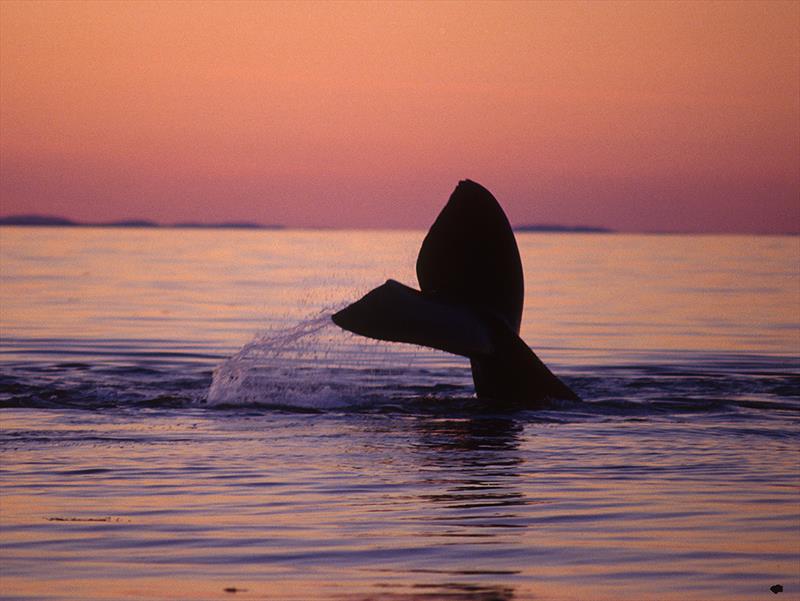
New report explores threats, solutions impacting right whales
by The Woods Hole Oceanographic Institution 31 Mar 2019 04:07 UTC

A North Atlantic right whale dives in search of food near Grand Manan Island in the Bay of Fundy, Canada © Michael Moore, Woods Hole Oceanographic Institution
The North Atlantic right whale is a critically endangered whale species that is protected under the U.S. Endangered Species Act, the Marine Mammal Protection Act, and Canada's Species at Risk Act. These animals, of which there are only 411 remaining, are often found within 50 miles of the East Coast of North America, making them vulnerable to human activities.
A new report from Woods Hole Oceanographic Institution (WHOI) discusses some of the critical threats affecting right whale populations, including entanglements in fishing gear, ship strikes, and noise pollution in the ocean. The report, produced in collaboration with WHOI marine biologists Michael Moore and Mark Baumgartner, also explores the crucial efforts under way to develop the most effective and pragmatic solutions for addressing these risks and supporting the recovery of the North Atlantic right whale population.
The free report can be downloaded here.
This article has been provided by the courtesy of Woods Hole Oceanographic Institution.